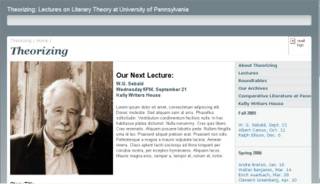Dylan, the Ventriloquist
If you don't know already, Martin Scorsese's new documentary on Bob Dylan, titled No Direction Home, comes to PBS's American Masters series this week in two parts airing tonight and tomorrow. Being a huge fan of both Dylan and Scorsese, I've been waiting for this for a long time. What's unusual is that the documentary, in addition to being screened to packed audiences at various clubs and movie theaters, has already been released on DVD. This means that I've already had a couple of chances to see it and that if you haven't seen it already, I'm available to tell you why you should.
The film charts the beginning of Dylan's career, from his childhood in Minnesota to the 1966 motorcycle crash that briefly but decisively sidelined him at the height of his fame. Scorsese, who in addition to his feature films also had a hand in the Woodstock documentary, The Band's The Last Waltz, and PBS's recent series of documentaries on the blues, uses a light but expert hand, blending old footage and photos with interviews with Dylan and his contemporaries.
Part 1 does a particularly good job at establishing the musical context of Dylan's early career, from the country, folk, blues, and rock records that he listened to as a child and young teen to the NYC folk and arts scene he landed in while still a teenager. It ends with Dylan having written his first (and revolutionary) batch of original "protest" songs, hailed by the press, publishing on Columbia, in love with Joan Baez, and seemingly ready to take the mantle as the musical and political voice of his generation.
Part 2 begins with Dylan taking a decisive turn away from that path at an event I had heard of but knew little about: his acceptance speech for an award he was given by the Emergency Civil Liberties Committee, where he surprised and blasted the tony and older but progressive crowd on behalf of the virtues of youth, artistic freedom, and moving up and away from the world of politics. It's the first in a series of moves whereby Dylan pushed back against both his popular image and the terms of his own success. From 1964 to 1966, he develops an increasingly abstract, contrary and difficult public persona while likewise fusing more abstract and symbol-driven lyrics with raucous electric guitar-driven rock and roll. Fans of his earlier music and the frustrated press turn on him, feeling musically and politically betrayed, and become likewise confrontational, culminating in his infamous 1966 European tour. By the end of the second part of No Direction Home, Dylan is clearly exhausted: "I just want to go home," he pleads, a subtle play on the title and Dylan's own intent on self-creation. "I felt like I had no history, no past at all," he says in Part 1, explaining changing his name to Dylan from Zimmerman. For six years, Dylan deals in ruses, misdirections and outright lies, and very nearly becomes an entirely self-invented creature. Then he crashes.
A common way of explaining Dylan's turn from topical songwriting -- a central topic of No Direction Home -- uses the language of Romantic self-expression to contrast Dylan's personal and poetic songs from his earlier political work. On this story, Dylan refuses to serve the political and artistic demands placed on him by others to pursue his own artistic vision. This documentary nicely avoids that schema. For one thing, while some of Dylan's later songwriting is obviously personal (for example, at least some of the songs on Desire and Blood on the Tracks), his songs from the mid-60s aren't. There's nothing personal, in any straightforward way, in "Mr. Tambourine Man" or "Maggie's Farm," "Ballad of a Thin Man" or "Desolation Row."
Instead, what you see is Dylan trying on different masks -- personal, musical -- in a kind of evasion or evacuation of personality, of the sort that T.S. Eliot describes in "Tradition and the Individual Talent." He invents personae, narrative and lyrical subjects, tells abstract stories that go nowhere, kiss-offs like "Positively Fourth Street" or "Like A Rolling Stone," and generally engages in a lot of play. His press conferences are nearly as fun (and frustrating) to watch as his concert performances, because Dylan is always interrogating the terms of the questions asked him rather than give an expected answer. "Who said that?" is a favorite counter-question; "What do you think?" is another, or "How can I answer that if you've got the nerve to ask me?" Other times he empties or plays up the absurdity of categories: "All my songs are protest songs." "I consider myself a song-and-dance man."
A friend of mine asked me the other day what Dylan's predominant discursive mode was (you see the kind of friends I have) and I answered "ventriloquism." It's a bit of a toss-off answer but I think it's revealing. One of the things that Dylan understood about the folk tradition is that it has nothing to do with sincere self-expression and everything to do with making up stories speaking through someone else's voice, what Greil Marcus called "the weird old America": whether it's a down-on-his-luck moonshiner, a girl ruined by a New Orleans house, or a hobo dreaming of a big rock candy mountain. It's fascinating to watch Dylan refuse one kind of ventriloquism -- letting himself be the medium for a generation, a political program, or any other impersonal force -- and savor the fun and a little of the dread of becoming, as Allen Ginsberg put it, "a column of air."

